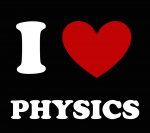 Physics can be discriminated from other scientific disciplines by its pursuit toward fundamental and universal knowledge. Unlike other majors defined on the basis of the objects of study, physics continually seeks to develop general and rigorous conceptual frameworks in which the structure and dynamics of a system can be quantitatively described from the interactions among the “building blocks” at various abstraction levels. As such, the origin and evolution of the universe, the nature of light, material properties of condensed matter and the molecular mechanism of life, each being in itself an independent discipline, have naturally arisen from and been incorporated into the fundamental formulation of physics. With the current technological advances in atomic and molecular imaging and analysis, rapid increase in computing power and accumulation of large-scale empirical data, a “convergence” among scientific disciplines is occurring at an unprecedentedly rapid pace. To keep up with this trend, institutes of higher education are adopting a wide range of interdisciplinary curricula by the restructuring of their teaching and research bodies. The physics community is also constantly expanding its scope by developing new courses that mesh the boundaries between the traditional realm of physics and those of the politico-economic, social, life and information sciences. Another visible trend that parallels with this convergence is many of the leading scientists and engineers at the frontier of this interdisciplinary research tend to be physics majors. This is not a coincidence but tightly correlated with the essential value and theme of physics – to search for fundamental and general principles. With the institutionalized practice of convergence and the boundaries between disciplines becoming ever more ambiguous, this offers a practical clue on what to choose for our intellectual basis. Setting aside the employment opportunities, the methodology and background training in physics is, as we have witnessed for several centuries, still the most powerful and effective tool for exploring the front lines of science and engineering.
Physics can be discriminated from other scientific disciplines by its pursuit toward fundamental and universal knowledge. Unlike other majors defined on the basis of the objects of study, physics continually seeks to develop general and rigorous conceptual frameworks in which the structure and dynamics of a system can be quantitatively described from the interactions among the “building blocks” at various abstraction levels. As such, the origin and evolution of the universe, the nature of light, material properties of condensed matter and the molecular mechanism of life, each being in itself an independent discipline, have naturally arisen from and been incorporated into the fundamental formulation of physics. With the current technological advances in atomic and molecular imaging and analysis, rapid increase in computing power and accumulation of large-scale empirical data, a “convergence” among scientific disciplines is occurring at an unprecedentedly rapid pace. To keep up with this trend, institutes of higher education are adopting a wide range of interdisciplinary curricula by the restructuring of their teaching and research bodies. The physics community is also constantly expanding its scope by developing new courses that mesh the boundaries between the traditional realm of physics and those of the politico-economic, social, life and information sciences. Another visible trend that parallels with this convergence is many of the leading scientists and engineers at the frontier of this interdisciplinary research tend to be physics majors. This is not a coincidence but tightly correlated with the essential value and theme of physics – to search for fundamental and general principles. With the institutionalized practice of convergence and the boundaries between disciplines becoming ever more ambiguous, this offers a practical clue on what to choose for our intellectual basis. Setting aside the employment opportunities, the methodology and background training in physics is, as we have witnessed for several centuries, still the most powerful and effective tool for exploring the front lines of science and engineering.
